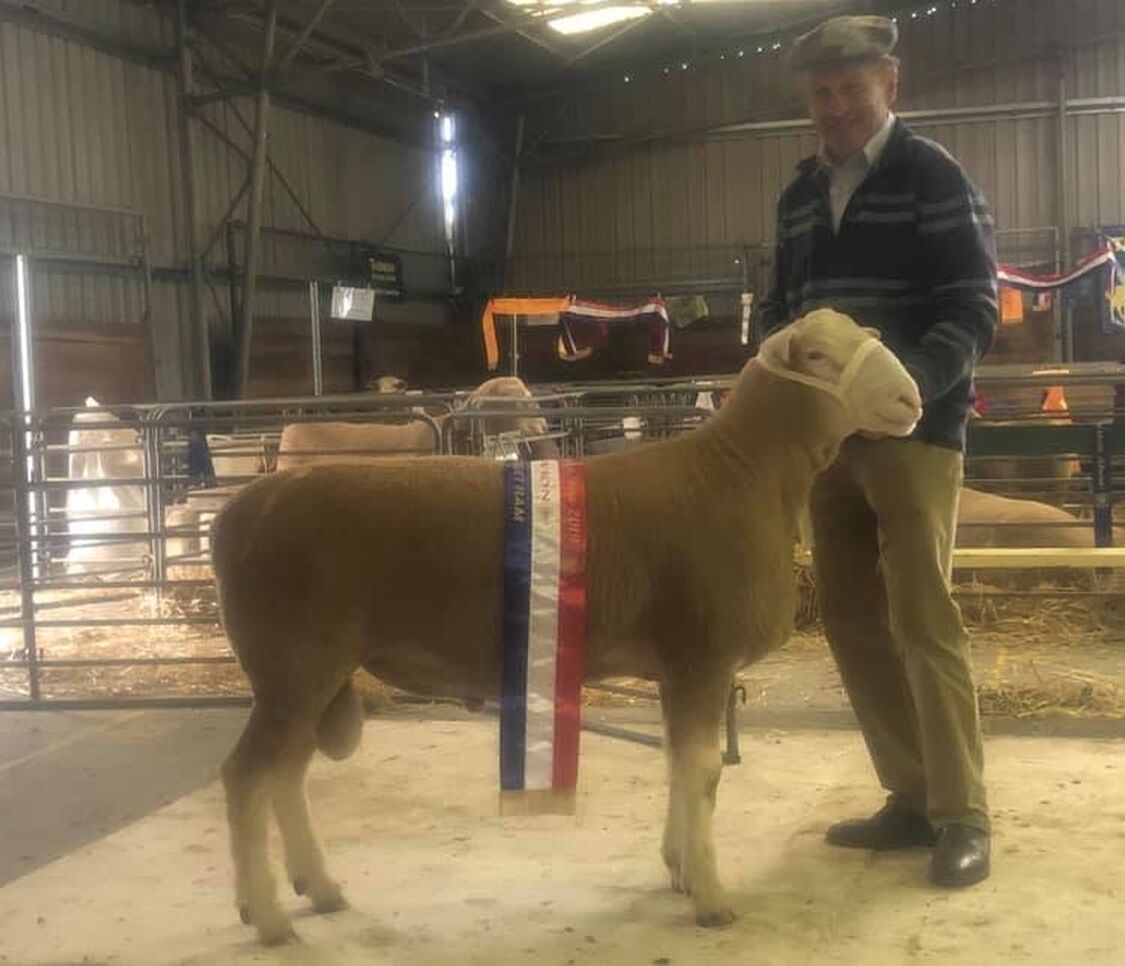THE Poll Dorset breed’s unofficial Tasmanian reporter-on-the-ground Frank Badcock is modest about his sheep breeding success.
But anyone in the business will know running a successful stud for 50 years is about as successful as it gets.
Frank started the Fairbank Poll Dorset Stud in 1969, with the purchase of ten cast for age mated ewes from the Wynyard stud of W.& E. Roberts Thomson,Table Cape Farm, Wynyard ,Tasmania.
The Hagley, Tasmania, stud now runs about 250 ewes and hosts an on-property ram sale each year.
Frank, a fourth generation stud sheep breeder, says son Chris is now at the helm - but Frank is still never too far from the action, especially on the show floor.
Frank had a Poll Dorset scrapbook while he was still at school, well before buying any sheep, but it wasn’t long after that he selected his first ewes.
“I had a mate who had a Poll Dorset stud, and they were receiving a lot of publicity in the 60s - I wanted to start a stud that was mine from the start and didn’t take over from the previous generation, that was my main motivation,” Frank said.
“In the early years most of the Tasmanian Poll Dorset rams were sold to WA, that was the main market, but for the past 30 years it has been selling mainly back into Tasmania.”
Frank’s Fairbank stud was one of the first in Tasmania to begin using Lambplan, and he points to it as one of the biggest changes in the industry since he started out.
“When I first started the benchmark was royal show champions, now it is performance recording and Lambplan figures ,” he said.
“When it (Lambplan) was first available I was right there on the job straight away. It was a no brainer to get in on the ground floor and use that as part of the selection criteria.
“But it is still always structure first, that’s where the show ring is important; it keeps your eye on the structure, then figures second.
“Showing sheep has been part of my life since 1964 with our Southdowns - a few Poll Dorset rams were shown at the Perth Royal in the 1970’s and on the odd occasion at the Melbourne Royal but generally just the Royal Launceston and Hobart Shows each and every year.”
The other game changer for the breed and Fairbank over the past 25 years has been the widespread use of artificial insemination, Frank said.
“This has allowed the use of rams that otherwise would not have been available,” he said.
“Poll Dorset breeders are pretty good at adapting to markets pretty quickly - it is easier now to change the type, whether you want more muscle or more growth you can do that in almost one generation these days.”
When it comes to his sheep, Frank continues to aim towards a medium frame animal with good structure, narrow shoulders and a well-filled back hindquarters.
The should-set is of specific focus to Frank, who says this is key to avoiding lambing issues, rather than lowering birth weights too drastically.
“If we get too low on birth weight we lose survivability - it is more important to have shoulder structure correct then extremely low birth weight,” he said.
Frank is hesitant to talk up his achievements from 50 years in the Poll Dorset game, of which there have been many, but he will say it is “satisfying that we can continually sell 80 to 100 rams a year, and have been doing that for quite some time”.
Frank spent 20 years on the Australian Poll Dorset Federal Council, and enjoyed his time on the board representing Tasmania and making long lasting friendships.
He’s also spent many years being what he describes as the “unofficial Tasmanian reporter”, sending through show and sale results for the Poll Dorset contingent on the Apple Isle, and still now keeps those on the mainland up-to-date with the latest going-ons.

Frank Badcock at 2019 Royal Launceston Show with Champion Poll Dorset Ram.